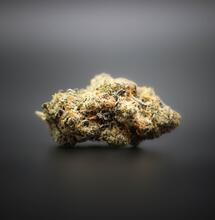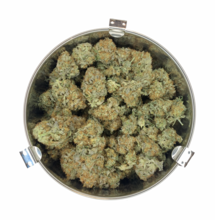Can the UK ever Become a Medical Cannabis Industry Leader

When research from two industry pressure groups recently went public, it revealed that the UK cannabinoid (CBD) industry was worth £690mln in the 12 months to the end of April, which is triple that of the 2019 estimate. While the industry is apparently growing, something is not right.
CBD is the non-psychoactive chemical substance extracted from marijuana and hemp crops and is used in a variety of products that treat an array of conditions ranging from anxiety and depression to chronic pains. The data provided by the Association for the Cannabinoid Industry (ACI) and the Centre for Medical Cannabis (CMC) says it's a "quiet cannabis revolution" unfolding. It hints that regulatory bodies like the Home Office and the Foods Standard Agency have managed to successfully support the industry to the point where the report concludes "the UK now has the most evolved framework in the world for CBD." While the UK also remains to be one of the world's biggest exporters of CBD products, the use of its own medical cannabis at home is almost fictitious. For that speaks the fact that although medical pot is technically available on the NHS since 2018, accessing NHS medical cannabis prescription has been, for the most part, rare. Only around 2,500 patients are officially prescribed pot across the UK, and all those prescriptions are private. People have to pay for the medicine from their pocket. Even a more depressive fact is that as few as three prescriptions have been made available on the NHS, Health Europa reported earlier this year. "The medical cannabis industry is a multibillion-pound industry, and in my view when the industry is properly established in the UK in a year or two, people will see it is a safe product and think about legalising it - as has been the pattern in many jurisdictions," Professor Mike Barnes of Maple Tree Consultancy told the team of Health Europa when asked what the future might look for medical cannabis in the UK. "Sadly, I do think that if the medical establishment remains so reluctant and slow to establish medical cannabis, then they could be bypassed, whereby we end up with a recreational industry which people go to in order to get their own medicine," Barnes said. "Cannabis is here to stay – no doubt. I see the NHS beginning to prescribe over the next few years – so this will not only be great for the cannabis industry, but I also see a more vibrant cannabis sector with a great range of medical cannabis products," Barnes said. A recent paper issued by Maple Tree Consultants and Mackrell Solicitors called on the UK Government to review its restrictive approach to the country's cannabis market. The report highlighted antiquated laws and regulations that are halting the development of the multi-billion-pound industry on the island. The paper emphasises should regulation is improved, the medical cannabis market could blossom at a value of £2bn. It could open nearly 100,000 job opportunities and revamp the access of the estimated 1.4 million individuals who could benefit from inexpensive pot-based medicine. Sixteen industry heavyweights, including Prohibition Partners and the Primary Care Cannabis Network, backed the discussion paper. The report also showed that the UK's medical cannabis production is limited to one leading grower: British Sugar, and one leading producer, GW Pharmaceuticals. And although the UK was supplying 44.9% of all medical cannabis in 2018, its two main products, Sativex and Epidiolex, were scarcely used on the domestic private market. For the needs of domestic cannabis patients to be met, the UK also needs to increase its capacities and ease the process cultivators need to undergo to pursue a high-THC growing license from the Home Office. As of October 2019, there were only 19 extant licenses to cultivate high-THC cannabis in England, Wales, and Scotland, most of them on behalf of GW Pharmaceuticals, the report found. Considering that applications to the Home Office to grow cannabis for medical reasons have been open for a couple of years now, that number is deficient. If even half of the estimated 1.4 million individuals who could benefit from a legal cannabis market were to be granted prescription, it would catapult the worth of the medical cannabis industry to an avid £2bn figure. Add to that the millions the sector would generate each year in tax revenue. Back on the CBD issue, although there is a robust regulatory framework in place, the UK is again losing. The existent restrictions on hemp cultivation and processing undermine profit-making potentials at home. The report has found that the UK's CBD market was worth £300m in 2019, but most CBD products come from foreign sources, as UK regulation asks farmers to discard the most CBD-rich parts of the hemp plant, such as the flowers and leaves. Only the stalks and the seeds can be processed for textiles or foods. If this market is to represent a critical growth sector for the UK, then it's time for its government to adopt an efficient strategy to protect it and grow the cannabinoids sector opportunities. As the report recommends, if the medical cannabis industry in the UK is going to work, it needs serious reform. It will need to allow the cultivation of the hemp flower to extract CBD under an Industrial Hemp license. It will also need to reform the high-THC cultivation/controlled drug license system and increase the THC limit from 0.2% to 1% in order to remain competitive on the international market. It needs to invigorate the health system by allowing medical practitioners more freedoms to take patient care with cannabis medicine. And it needs an Office for Medicinal Cannabis, as implemented by other countries like the Netherlands. In sum, the UK needs an urgent reform in licensing policy, more funds to run clinical trials and stay up-to-date with scientific research, and a dedicated agency to oversee the industry. There's a lot of opportunity for growth in the sector. It will just take the will and strategy to change. And that change must happen sooner rather than later.











